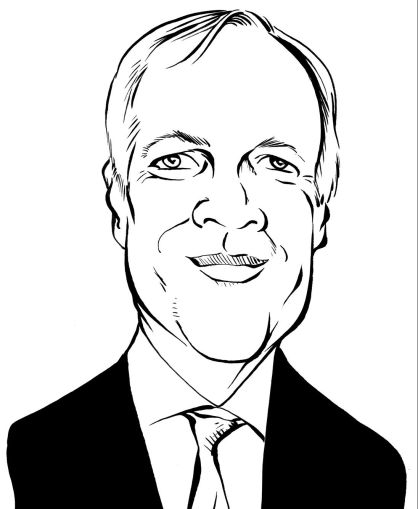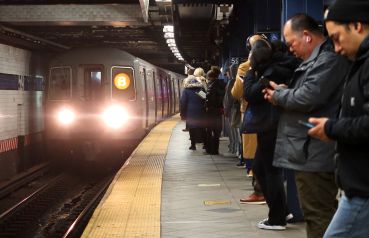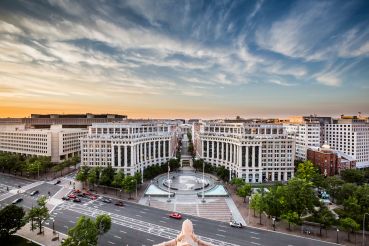Will There be Heartbreak for Hotels?
By Dan Gorczycki November 9, 2016 6:37 pm
reprints
“Sooner or later everyone sits down to a banquet of consequences.”—Robert Louis Stevenson
Over the last decade, hotel investing has been the epitome of a V-shaped bottom. After a tremendous boom from 2004 to 2008, hotels crashed as consumers stopped traveling and hotel rates and occupancies plunged. Financing for hotels was especially scarce. However, since 2009 the hotel market has been one steady climb upward. Over 100,000 rooms were added in each of the last two years in New York City alone.
On a global basis, hotel industry revenue will reach $550 billion in 2016 versus $457 million in 2011, according to Hospitality Net. On the capital side, we’re seeing deals like China Life investing $2 billion in Starwood Capital’s U.S. portfolio. So all seems rosy, right? Perhaps not.
There is suddenly serious concern that we may have an oversaturation of rooms in many markets due to overbuilding, financing has become more expensive due to regulatory issues, and there is a growing fear that the consumer will reduce spending on any sudden downturn in the economy or stock market. Further, the “Black Swan” of Airbnb has crept into the marketplace. The question is, When will the cumulative effect of these factors be reflected the operating metrics?
Financing fueled the development of new hotels with cheap Libor-based construction loans while permanent loans became more attractive as commercial mortgage-backed securities and B-piece buyers started becoming accepting of having up to 20 to 25 percent of hotel loans in any one securitized pool. Hotel loans generally garnered a 25 to 50 basis point premium over other commercial loans making them more profitable to the lenders.
For high-end assets, attractive financing is still possible. J.P. Morgan Chase recently closed a $400 million single-asset securitization on the Hyatt Regency Waikiki Beach Resort and Spa in Honolulu, which priced at a 4.02 percent coupon for a five-year term. This was an acquisition loan on a $782 million purchase from Blackstone Group. For assets a cut or two below such a trophy asset, the loan pricing increases. Ashford Trust recently refinanced a portfolio of 18 hotels, which included several Courtyard by Marriott and Residence Inn hotels. Pricing was Libor plus 455 basis points on a two-year floating-rate loan. Now, if the hotel falls a tier below that, nonrecourse bank financing and CMBS loans are not likely even available, and you often will have to resort to a hard money loan which can price at Libor plus 600 to 900 basis points. This added interest expense can certainly impair the bottom line, and any decrease to the ADR will exacerbate the effect.
Meanwhile, there is no bid for financing hotel construction in a tertiary market. I’ve previously written about the effects of Basel III, Dodd Frank and High Volatility Commercial Real Estate Loans and their restrictions that banks have to endure. These regulatory changes, where more reserves need to be held by banks against these loans, have had the most dramatic impact on hotel lending. Combine that with the perceived oversaturation of hotel rooms, and most banks have simply thrown up their hands and eschewed hotel construction loans entirely. Now, if occupancies fall once all of this new supply comes on line and financing costs rise substantially, the “steady climb up” fundamentals are bound to flatten out and probably even decline. While hot markets like Minneapolis/St. Paul, New Orleans, Orlando, Phoenix and Los Angeles experienced a double-digit rise in RevPar in September, some markets have already felt the pinch. Houston is a notable underperformer with a 13.1 percent drop in RevPar and 9.3 percent drop in occupancy (STR).
As for the elephant in the room, Airbnb now has 2.3 million listings worldwide. It is more than twice the size of Marriott International and Starwood Resorts combined, per Hotel News Now. Exactly by how much the Airbnb market grows and its impact on hotel performance is the source of much speculation. Nationally, on average, hotels charge $43 per night more than Airbnb. In an economic downturn, this discount could become a big factor. Clearly, it is very difficult to compare the two markets since there are so many accommodation types and level of service. But suffice it to say that Airbnb will impair hotel performance metrics going forward—the only question is when and by how much. No need to cue up Heartbreak Hotel just yet. But Elvis is in the building.


